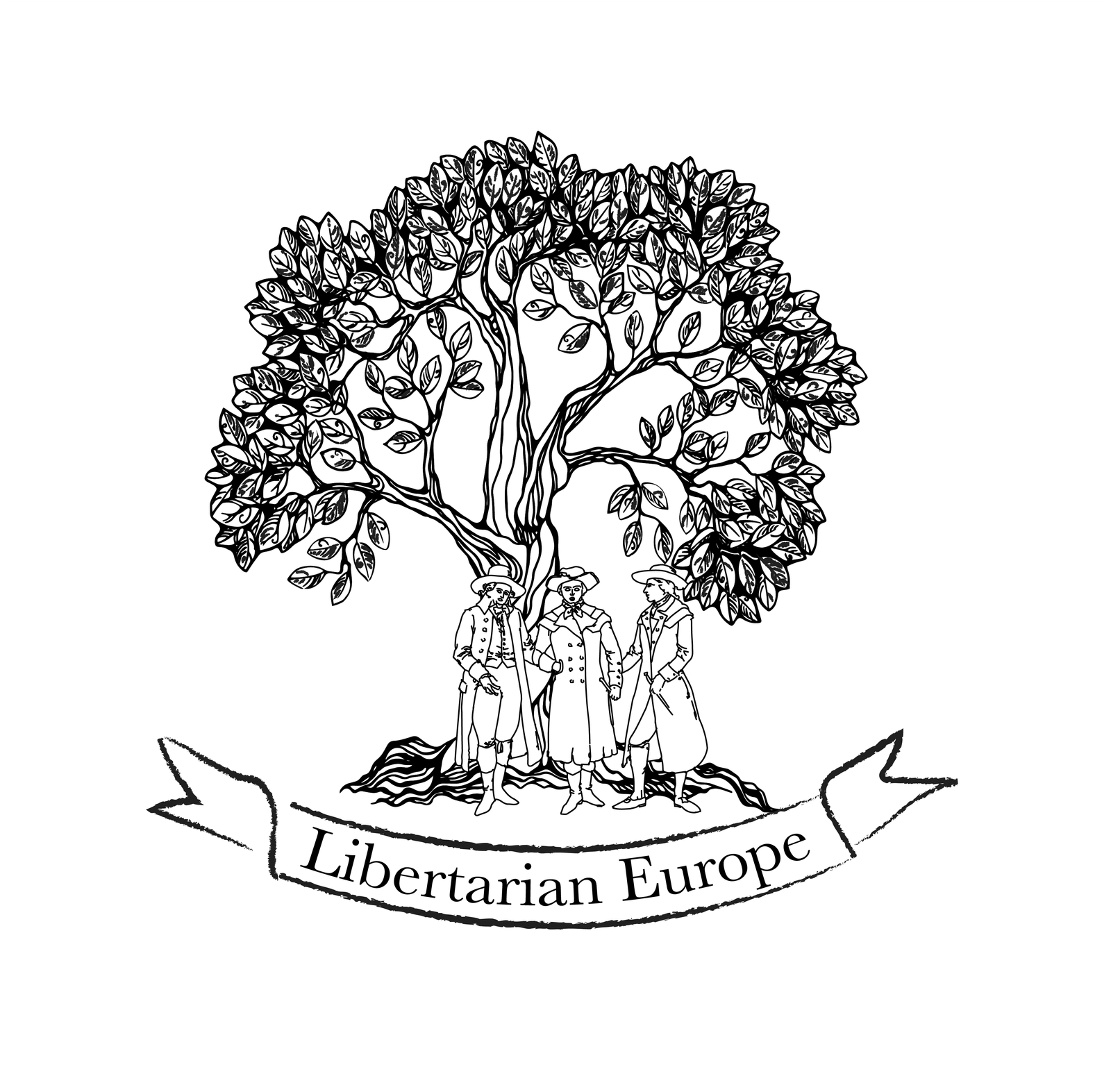
The Vegan Extreme of the Non-Aggression Principle
Firstly, it indeed requires a certain amount of self-control. Perhaps it is self-control misguided into unnecessarily sad life, but still admirable.
Secondly, it makes a somewhat consistent case, especially in contrast to the broad societal understanding of animal welfare and standards of treatment that society tends to apply completely inconsistently towards other living creatures than us. One is horrified to hear of someone eating dogs and could even feel that fear while nibbling onto a piece of bacon, completely oblivious to the grotesque reality that the fact that he has warm feelings when thinking about the descendants of wolves and lack of those in case of swine does not make it a moral calamity.
In the libertarian thought circles, one can notice a tiny group of those who not only adhere to the rigidity of the vegan lifestyle but wish to expand the core axiom of libertarianism, the non-aggression principle (further referred to as NAP) to the non-human animals. An example of such an intellectual is a YouTuber, Finntronaut, who created in the past quite a few marvellous libertarian metal compositions. The question of which beings are encapsulated by NAP is quite intriguing since it requires delving into the most fundamental ideas forming the argument for the ethical necessity of the NAP.
Several distinct philosophical positions exist which claim the necessity of embracing the entirely voluntary nature of human interactions. The objectivist crowd led by Ayn Rand considers reason rendering the initiation of violence superfluous and immoral. On the other hand, the paleolibertarian supporters of Hans Herman Hoppe see non-violence as a necessary presupposition of ethical discourse. Lastly, consequentialists in the likes of Mises, Hayek, or David Friedman may point out that NAP always leads to the best possible results, whether that would be an alignment with the selfish interest of an individual or some utilitarian concept of the greatest good. Each of those necessitates separate exploration of possible application towards non-human animals.
Hans Herman Hoppe in his argumentation ethics sets out the view that ‘the ought is dichotomy’ can be overcome, by the mere realisation, that humans who engage in a debate of political, social, and ethical issues are abstaining from the use of violence towards their opponents. Aggression towards interlocutors ends the conversation, as it is an ultimate failure to persuade them to your position. So mere participation in an argument would necessitate that both parties do not consider violence against each other adequate. Such ground rules would give an apriori justification for NAP.
This line of argumentation for NAP seems to be bulletproof towards any attempts to include animals into our moral consideration sphere. Our communication with swine or cattle is so rudimentary, and vestigial that it cannot be classified as argumentation. It lacks not only non-violence ground rules, but any sense of persuasion or conflict resolution. Hoppe’s rendition of NAP cannot contain a reason to not initiate violence against animals unless we find a way to communicate with octopuses who seem to be the most intelligently developed creatures in the animal kingdom.
The compatibilist moral system seems far more prone to vegan argumentation. As they accept that though violations of the NAP cannot be claimed to be objectively immoral, adherence to it almost always leads to the best possible results, and so it should be accepted as a moral rule, an obvious question arises about the standard for those best possible results. Those two are based on either rule utilitarianism or rule egoism.
Rule egoism seems quite invincible to vegan syllogisms. As it allows an individual to evaluate the optimal set of rules according to whether conformity to those rules brings the most benefit to himself, the question of animal consumption remains a cold calculation of one’s preferences. As long as some type of guilt or distaste for meat is not a stronger emotion for you than the pleasure from meat consumption your Non-aggression Principle is intact when you bite your teeth into the burgers, lamb tacos, and exquisite beef wellingtons.
Rule utilitarianism though opens up a whole can of worms. On one hand, the most liberal interpretation of utility worth consideration leads to vegans in the likes of Peter Singer, on the other hand a too restrictive view of utility might end with the application of moral standards only to one own’s sub-race. Use of the right standard is of worrying importance.
The core question, we need to have answered is why do we value an individual enough to consider him part of the utility we have a moral necessity of protecting? What makes a particular being worthy of our consideration? Once again, we return to Hume’s is-ought dichotomy. Standards we set are hardly justifiable by a mere presence in reality and nature. A quandary enters the horizon, with which philosophers dealt for the last century, and no sufficiently convincing model was set. In my view, the sole value of human existence determining utility is the capacity to reason. We should not use violence against humans since we possess the ability to dissolve disputes through logical interactions. I do not care if my friends have a nervous system capable of feeling pain, I care if they have the ability for intellectual interactions. What makes human relations interesting and valuable is the use of reason underlining all of them. Such property is lacking in animals placing them outside our NAP considerations. The value they have is only in some empathetic reaction. Reason as the faculty that identifies and integrates the material provided by man’s senses and attains knowledge beyond what is given by perception through volition and performs a specific method of validation by use of logic, observation, concept-formation, and the application of inductive and deductive reasoning makes us worthy of utilitarian consideration.
It is undeniable that most nonhuman animals (with certain species of apes the boundary becomes blurry) lack the ability to reason. I am not convinced pigs for example can form complex concepts, nor use logic. Communication of animals is so crude and primitive that it cannot be classified as reason and any kind of intellectual communication between humans and them is outright impossible. Animals are always driven by their instincts dictated by nature rather than rational decision-making. Therefore, their utilitarian value is ultimately none. The aspect of human existence which leads us to adopt NAP to protect individual rights is not present in the consumed animals. We may consume them in alignment with our most gluttonous appetites.
Does the model hold for the most extreme cases involving humans and their complex nature? Though humans have the capability for rational thought, they often abandon reason in favour of illogical, instinctual forces. Those aspects of their behaviour are indeed something not particularly desirable and valuable. An interaction with someone who can’t be reasoned with is uninteresting and worth as much as with an animal: not much. They are completely driven by illogical forces. One could claim that such standard discriminates between people based on their IQ. However, people with lower IQ still mostly act with the use of reason, so that makes them worth caring for. But I guess reductio ad absurdum, would be a person who only uses instinct, and I guess it would entail such a person has very little worth just the same as an animal. The caveat is that I do not think anyone like this exists.
Another potentially controversial aspect of that utility model is human babies, who lack the capacity to reason in their earliest stages of development, and even later they only have limited ability to think and rarely act with any decent amount of reason. I agree that babies do not use reason. However, they have a very good chance of becoming a being driven by reason (an adult). Therefore, we can value them not for what they are but for what they will likely become. If you have a seed, you value it not for its capabilities now, but for the potential of it becoming a fruit-giving plant. If animals could achieve reason at a certain point in their life we probably would want to wait for this moment to enjoy reasonable thought exchanges with them. But they do not. As long as the pleasant emotion I feel eating a slice of meat is stronger than the emotion caused by the fact that a cow was butchered to produce it, I will continue to.
The model I propose is closely related to Ayn Rand’s foundation for the NAP. The founder of objectivism believed that there is only one fundamental alternative in the universe available only to living organisms: existence or non-existence. Thus a choice to exist, necessitates that humans should base their moral valuation on whether a particular action is conducive to their existence. Humanity’s primary evolutionary advantage is the use of reason, which is highly beneficial to sustaining our existence. Rational thinking is therefore a desirable trait in our moral system. The only system facilitating the operation of reason is that of voluntary cooperation. Persuasion is the method of reason. Only the irrational would, therefore, resort to violence. The initiation of physical force against the will of another is immoral. Again, we reach a conclusion that non-human animals are not worthy of ethical consideration within the NAP standards, as being devoid of reason.
Thus, if you so desire bite, chew, nibble, absorb, devour and digest the dead bodies of non-human animals. Let your carnal lust of meat be absolved by the correct ramifications of the non-aggression principle.

